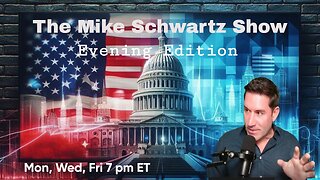Premium Only Content

"Food Stamp Restrictions: Can They Help or Hurt Children's Health?"
"Food Stamp Restrictions: Can They Help or Hurt Children's Health?"
https://www.sdotvenom.com/food-stamp-restrictions-can-they-help-or-hurt-children-s-health
The debate surrounding the use of food stamps, also known as the Supplemental Nutrition Assistance Program (SNAP), to purchase unhealthy foods, often referred to as "junk food."
Some advocates argue that restricting the use of SNAP benefits for purchasing junk food could promote healthier eating habits among low-income families and reduce rates of obesity and related health problems. Others argue that such restrictions could limit the food choices and autonomy of SNAP recipients and could be difficult to enforce.
There is currently no federal ban on using SNAP benefits to purchase junk food, although some states have attempted to impose restrictions. In 2016, the USDA rejected a proposal by the state of Maine to ban the purchase of sugary drinks and candy with SNAP benefits, citing concerns about the feasibility and effectiveness of such a ban.
Ultimately, the issue is complex and has valid arguments on both sides. The best solution would likely involve a comprehensive approach that includes education on healthy eating, incentives for purchasing healthy foods, and options for purchasing healthier foods in low-income communities.
According to the CDC, the prevalence of obesity among children and adolescents in the United States has remained high over the past few decades, with approximately 1 in 5 school-aged children and young people (6 to 19 years) classified as obese.
The data shows that the prevalence of obesity varies by race and ethnicity, with Hispanic and non-Hispanic Black children and adolescents having higher rates of obesity compared to non-Hispanic White and Asian children and adolescents.
Childhood obesity can have serious health consequences, including an increased risk of developing type 2 diabetes, high blood pressure, and other chronic conditions. Additionally, obesity during childhood can increase the risk of obesity and related health problems in adulthood.
The CDC recommends a variety of strategies to prevent and reduce childhood obesity, including promoting healthy eating habits, increasing physical activity, and creating supportive environments for healthy behaviors in schools, homes, and communities.
https://www.cdc.gov/obesity/data/childhood.html
According to the Centers for Disease Control and Prevention (CDC), the prevalence of obesity in children and adolescents has more than tripled since the 1970s. In 2015-2016, the prevalence of obesity among children and adolescents in the United States was 18.5%
-
 44:40
44:40
Katie Miller Pod
7 hours ago $6.86 earnedEpisode 1 - Vice President JD Vance | The Katie Miller Podcast
63.6K15 -
 13:09:34
13:09:34
LFA TV
1 day agoLFA TV ALL DAY STREAM - MONDAY 8/11/25
244K22 -
 1:44:36
1:44:36
RiftTV
9 hours agoBREAKING: Trump FEDERALIZES D.C. To RESTORE Law & Order | The Rift | Ryan Matta, Olivia Krolczyk + Braeden Sorbo
73.9K17 -
 3:00:47
3:00:47
megimu32
7 hours agoOTS: Breakfast Nostalgia + Blind Chocolate Cereal Showdown… LIVE! 🍫🥣
57.6K2 -
 3:36:47
3:36:47
LIVE WITH CHRIS'WORLD
15 hours agoLIVE WITH CHRIS’WORLD - It’s Called LAW & ORDER
45.9K7 -
 11:07
11:07
AlaskanBallistics
1 day ago $1.73 earnedBreek-Lok Quick Detach Hub Mount and Flash Hider System Review
37.1K6 -
 57:44
57:44
Donald Trump Jr.
11 hours agoExclusive Interview with Deputy Secretary of State Chris Landau | Triggered Ep266
123K60 -
 58:40
58:40
BonginoReport
15 hours agoModern Dating Woes & How To Resist Temptation w/ Tilly Dillehay - Hayley Caronia (Ep.109)
54.4K29 -
 53:55
53:55
The Quiet Part
14 hours agoThey Want You to Sign Over Your Life Insurance—So They Can Keep Lying to You
23.4K11 -
 1:47:05
1:47:05
The Mike Schwartz Show
11 hours agoTHE MIKE SCHWARTZ SHOW Evening Edition 08-11-2025
23K6